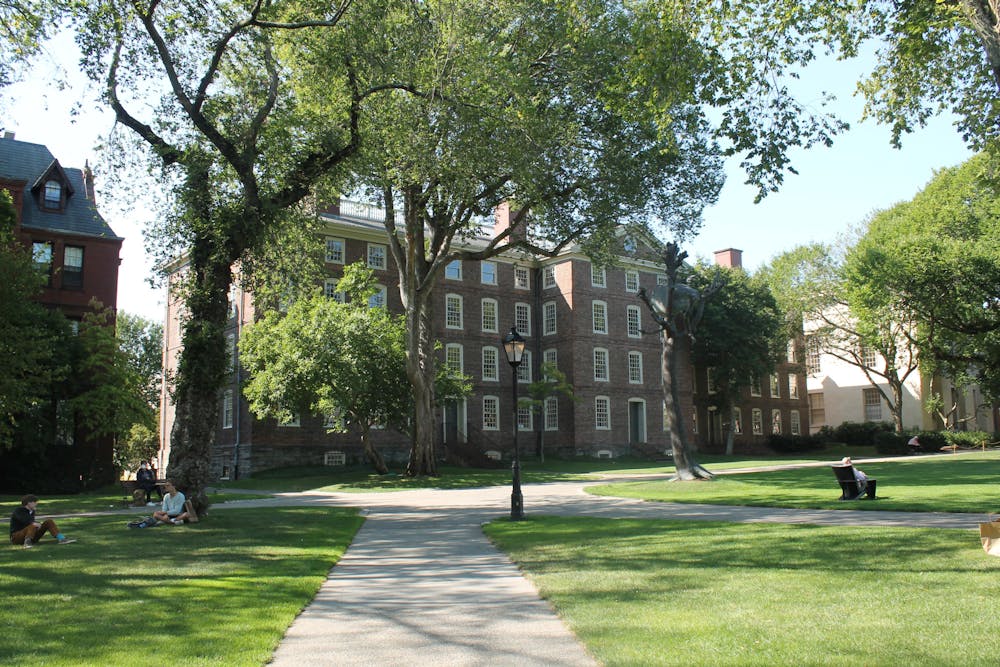Following the June 29 Supreme Court ruling outlawing race-conscious college admissions, student organizations at Brown were swift to denounce the decision — and called for the University’s Office of College Admission to solicit student input during this process.
In one response, the University’s Black Student Union issued a statement in conjunction with their seven Ivy League counterparts that “jointly condemn(ed) the Supreme Court’s gutting of race-conscious affirmative action.”
The eight organizations also called on their respective universities to “act,” “be transparent,” and include “student input” as they seek to maintain a diverse student body.
Jada Wooten ’24, co-president of BSU, was approached by the Black Student Alliance at Yale with the idea of drafting a joint statement in response to the decision, she wrote in an email to The Herald.
“We thought our voice would be stronger as a collective,” Wooten wrote. “Plus we know this collaboration will be the start of a stronger coalition amongst Black student organizations.”
Other groups have also released statements criticizing the decision and calling for University action.
The Brown College Democrats rebuked the Court, writing in a statement that “overturning affirmative action will prevent millions from achieving economic and social mobility and threatens the future of our campus.” The organization linked the decision to other recent decisions, such as the 2022 decision that overturned the right to abortion and the June decision that allowed businesses to reject commissions from LGBTQ+ people and others on religious and moral grounds.
“The Brown College Democrats will continue to hold the Brown University Admissions Office accountable,” the statement continued.
La Alianza, an undergraduate Latinx pre-law association, cited its members’ personal stake in affirmative action in a statement. “In a political system that relies on the exploitation of people of color — many within the Latinx community — affirmative action has provided a beacon of hope for the fulfillment of equal opportunity in education” the statement reads.
Many of the group’s members, the statement says, have found a “renewed sense of determination” to enter the legal field to build “a more equitable future within the legal system.”
The South Asian Students’ Association expressed its disappointment that “Asian Americans have been used as a scapegoat to uphold institutional discrimination.”
The organization further rejected the notion that the ruling widely benefits all Asian applicants, noting “the importance of uplifting Black, Latinx and Indigenous voices.”
Students for Educational Equity, an advocacy organization that has been a prominent critic of the University’s test-conscious and legacy admissions practices, issued a response via Instagram pairing this decision with its past activism.
The group promised to “educate prospective students on how to self-identify throughout the college admissions process” and reaffirmed its commitment to making test-optional admissions permanent and ending legacy consideration in admissions decisions.
The University has yet to commit to including an application essay that encourages students to share their racial identity as it relates to their life experiences — one possibility that Chief Justice John Roberts left open in his decision — but Associate Provost for Enrollment Logan Powell floated a similar idea as a possibility in a March town hall meeting, The Herald previously reported.
In a letter sent to the Brown community on the day of the decision, President Christina Paxson P’19 P’MD’20 provided a general overview of the path ahead, including an institutional review of the decision to determine how to admit diverse classes of incoming students while adhering to the ruling.
In an email to The Herald, Powell affirmed that meetings among University leaders have been ongoing since the decision.
In an email to high school college counselors in the Office of Admission’s database, Powell shared Paxson’s statement and noted that the University remains “unwavering and steadfast in our belief that a student body representing deep intellectual ability and broad diversity of background is essential to achieving our educational mission.”

Owen Dahlkamp is the managing editor of newsroom on The Herald's 135th Editorial Board, overseeing the paper's news operations. Hailing from San Diego, CA, he is concentrating in Political Science and Cognitive Neuroscience with an interest in data analytics. In his free time, you can find him making spreadsheets at Coffee Exchange.





